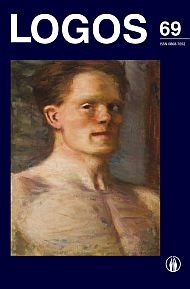Gorgijas Ir Protagoras: Poli(ti)Nio Subjekto Legitimavimo Anatomija
Gorgias and Protagoras: Anatomy of the Legitimation of Political Subject
Author(s): Skirmantas JankauskasSubject(s): Political Philosophy, Ancient Philosphy
Published by: Visuomeninė organizacija »LOGOS«
Keywords: Gorgias; being; non-being; word; Protagoras; man-measure; political subject; art of eloquence;
Summary/Abstract: Basing itself on the available historic testimonies, an attempt is made to reconstruct the thinking of Gorgias and Protagoras – the two most prominent Greek Sophists. Presuming that thinking is intentional, the objectives of Sophistical thinking are related to the political aspirations of Sophists. The author of the paper states that Solon’s juridical reforms were not sufficient to enhance the political activity of a free citizen as it was still paralysed by the authority of the gods – the embodiment of the Greek values. Thus, it is said that Sophists completed the juridical reform. On the one hand, they belittled the sphere of gods; on the other hand, they focused exclusively on the sphere of human activity and thinking and bestowed a man with an absolute authority within it. Both tasks were performed in an ardent polemic with preceding Greek philosophy that in its turn had provided the possibility of a rational approach towards the ontognoseological constitution of the Greek world. The polemic yielded the famous Protagorian man-measure statement that legitimated the political subject in the Greek cosmos. However, even this statement was not sufficient to stimulate the political activity of free citizens. Therefore, Sophists launched an instrument of political activity, namely, the art of eloquence. The art was enabled by the freedom of speech that emerged in the process of isolating it from gods and was implemented by exploiting the outer or material aspect of language. The paper concludes with the implications of the man-measure statement in political science and about the impact made by Sophists on the tradition of philosophy.
Journal: LOGOS - A Journal of Religion, Philosophy, Comparative Cultural Studies and Art
- Issue Year: 2011
- Issue No: 69
- Page Range: 21-36
- Page Count: 16
- Language: Lithuanian

